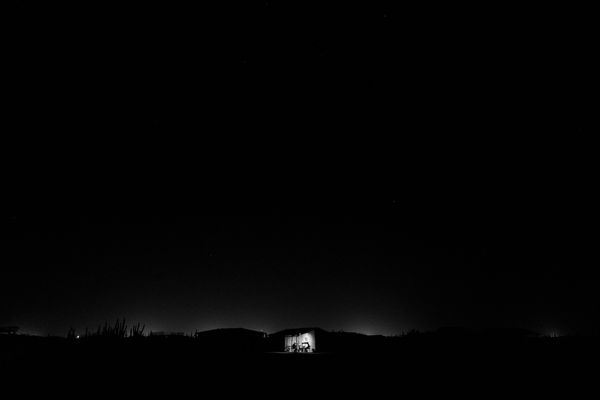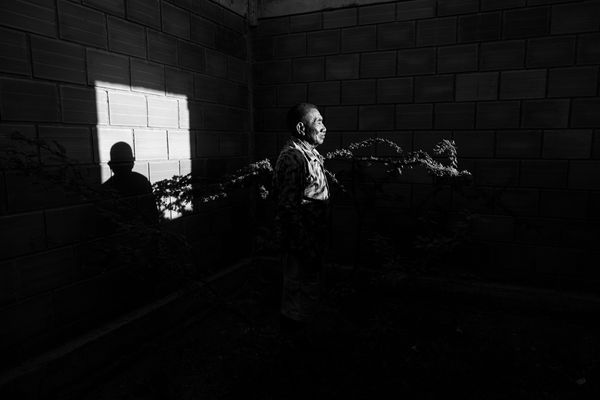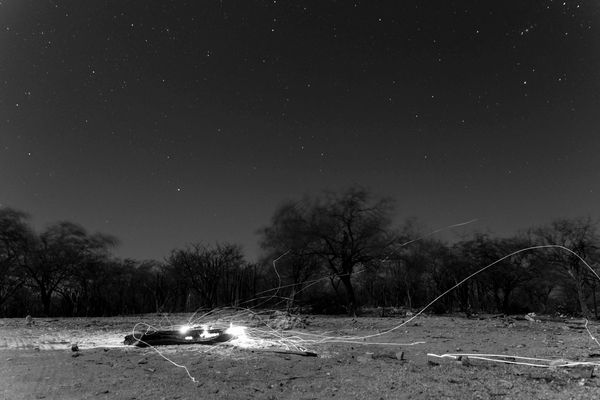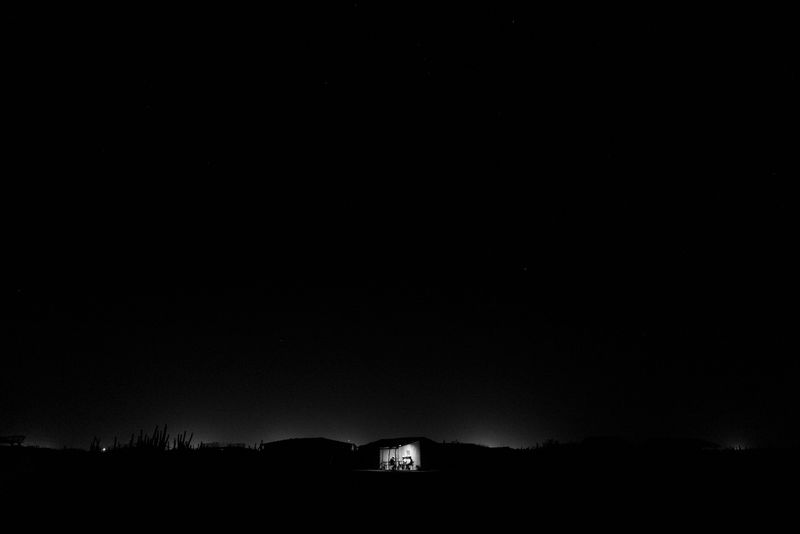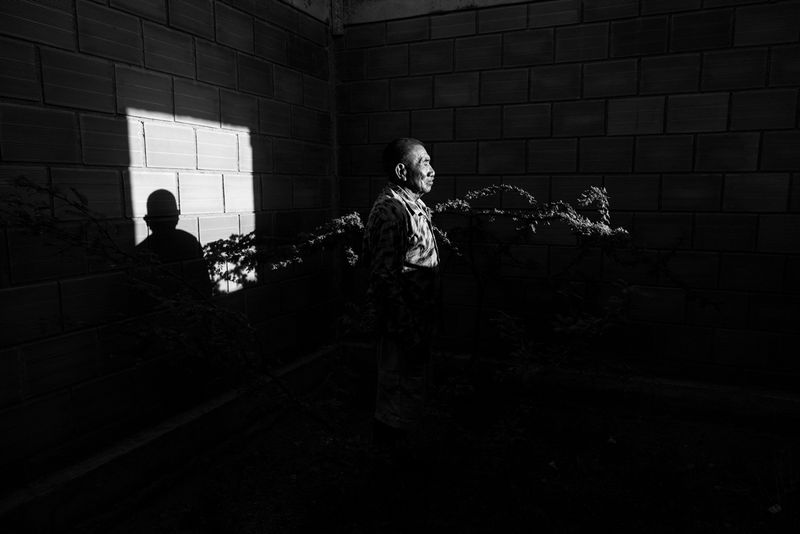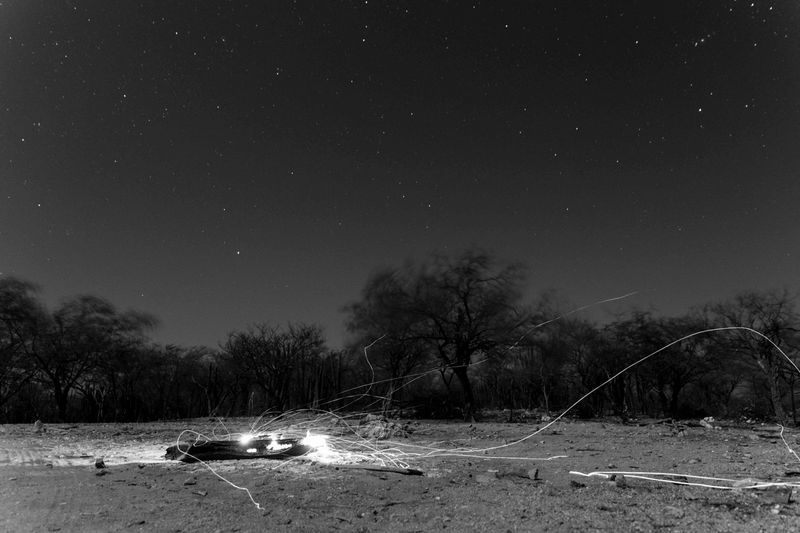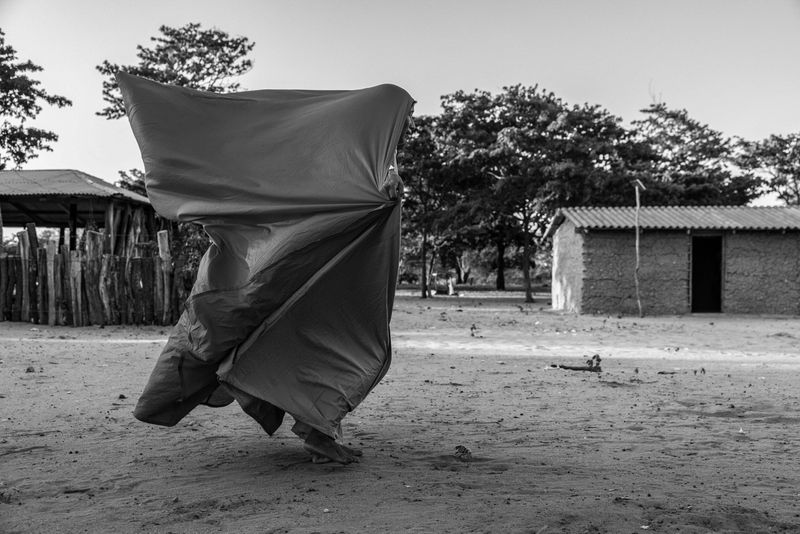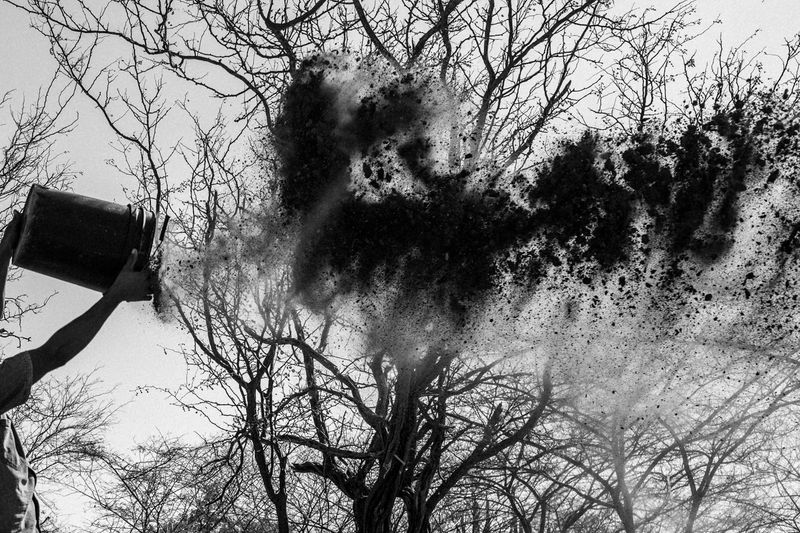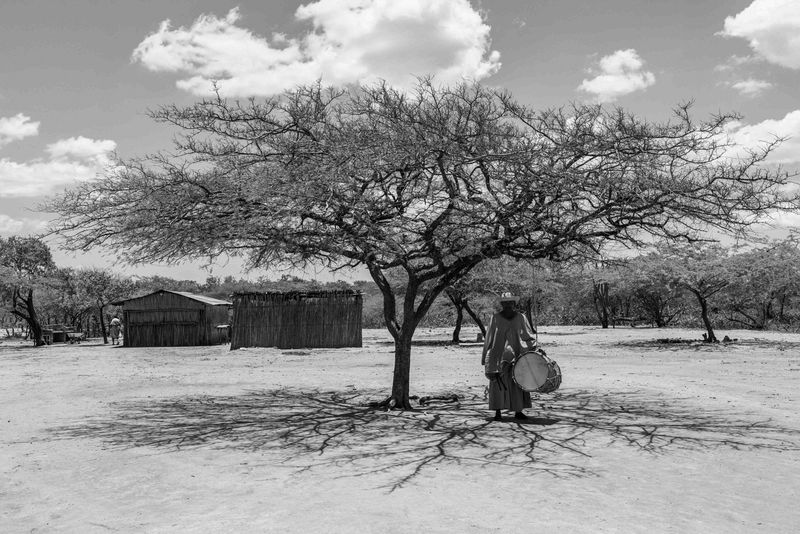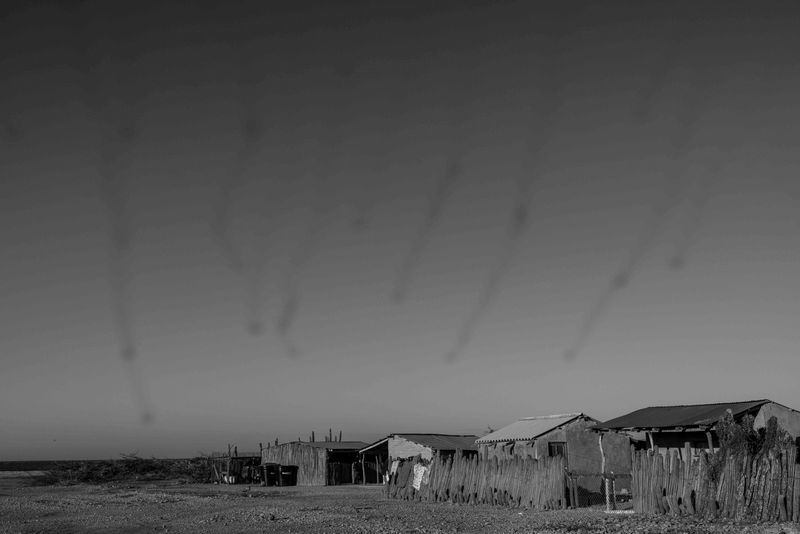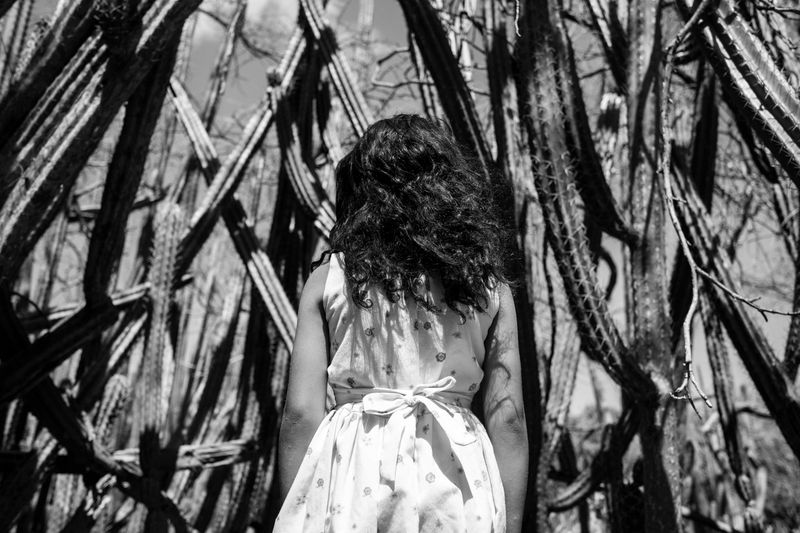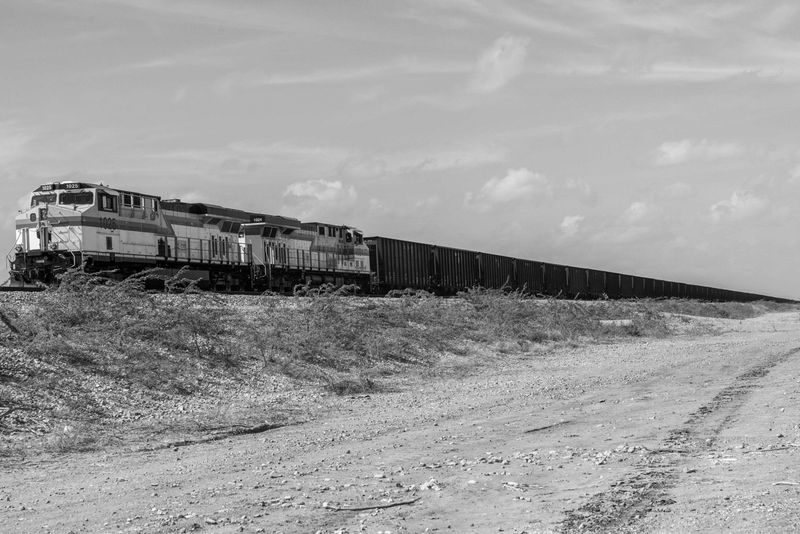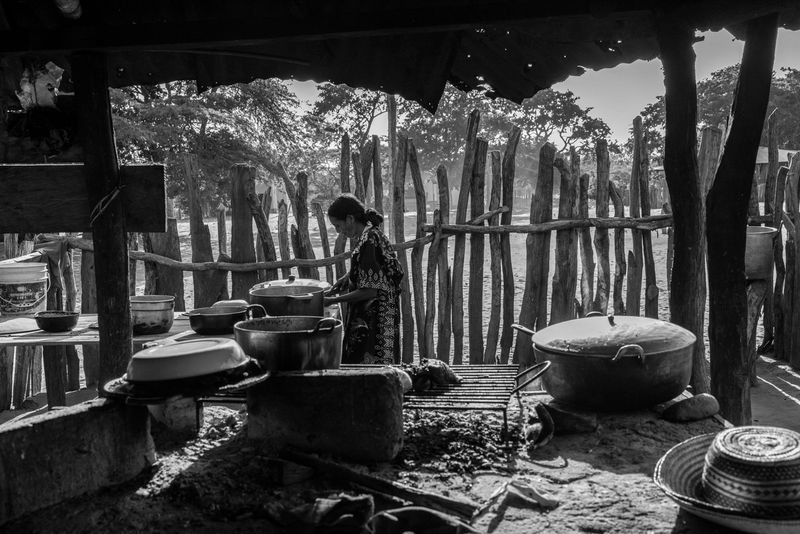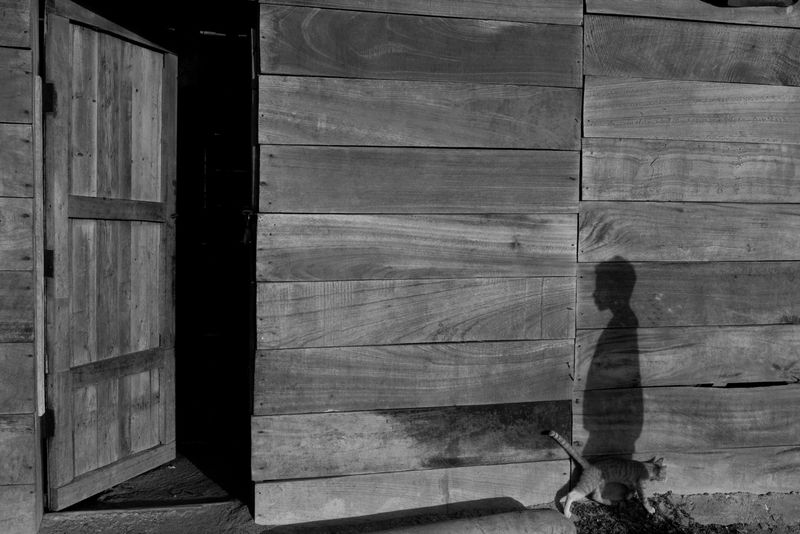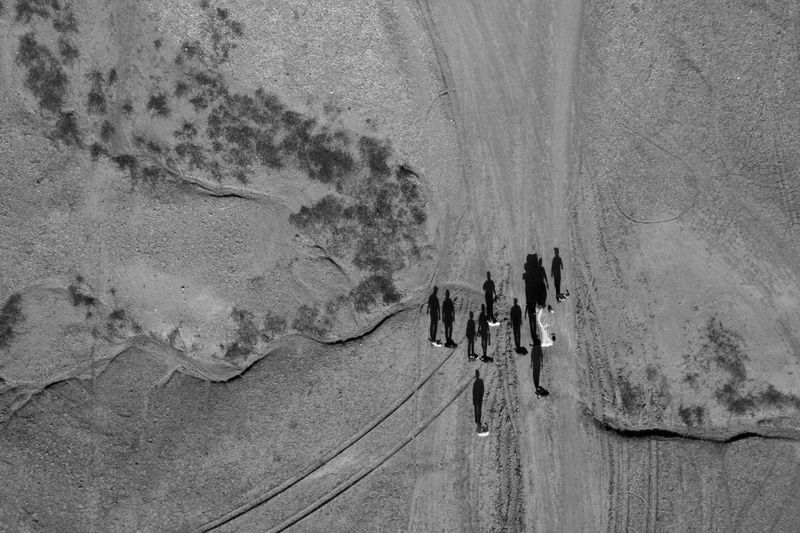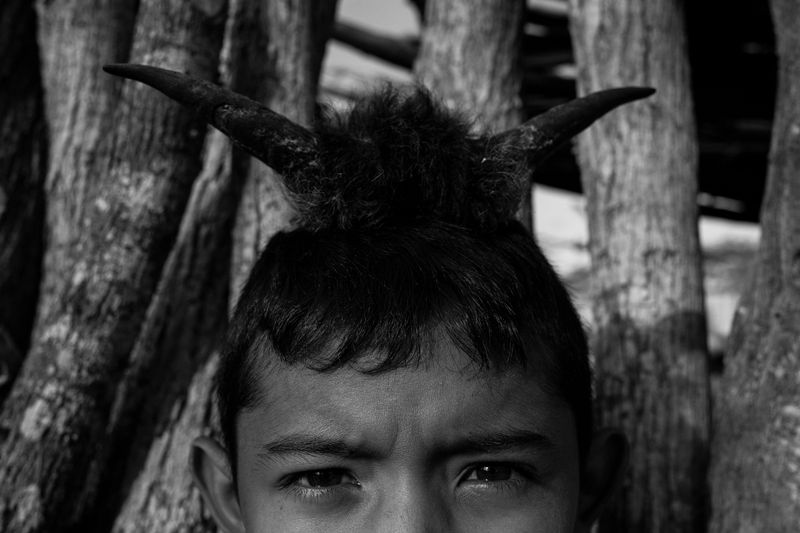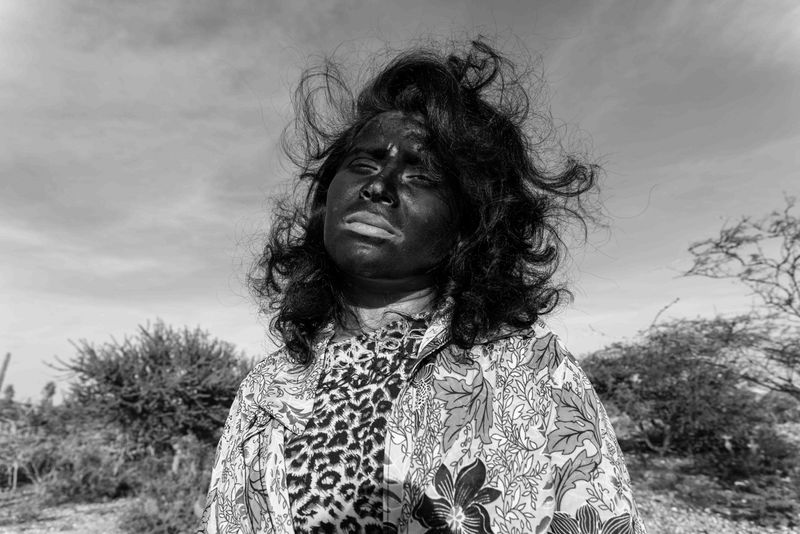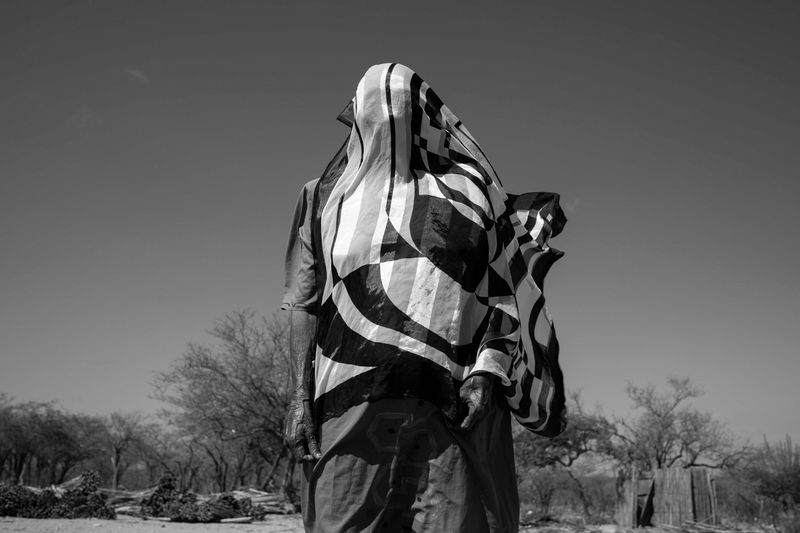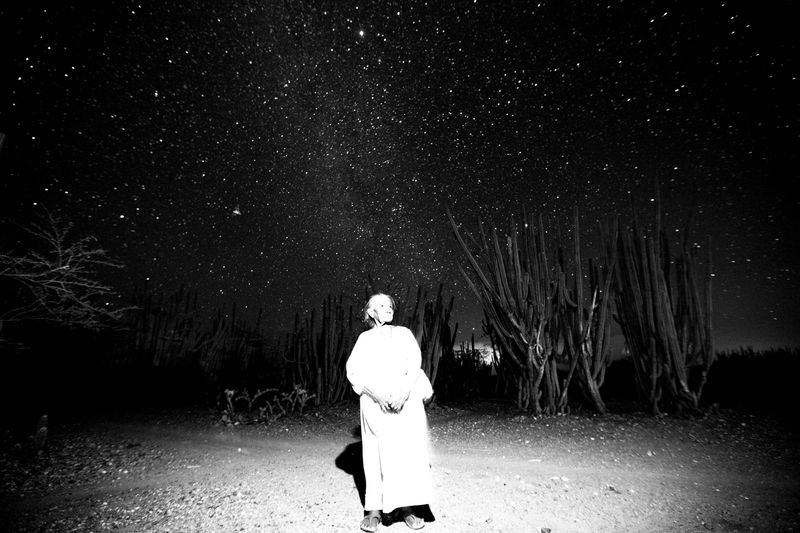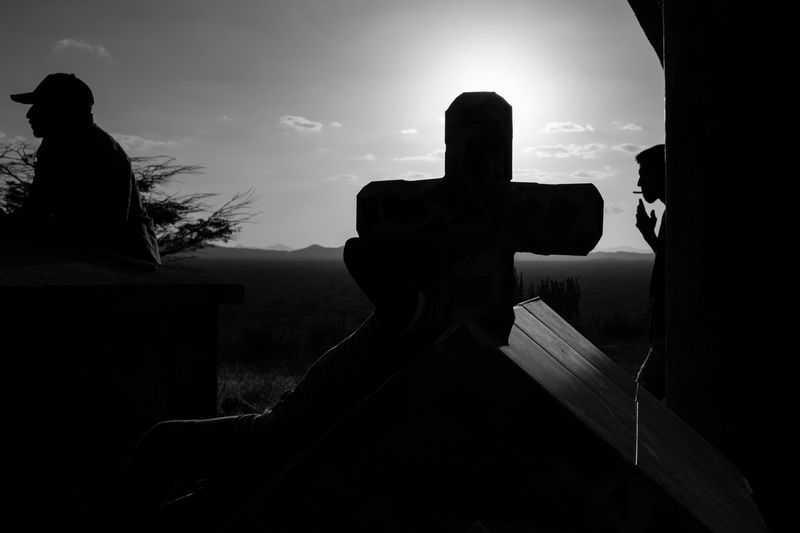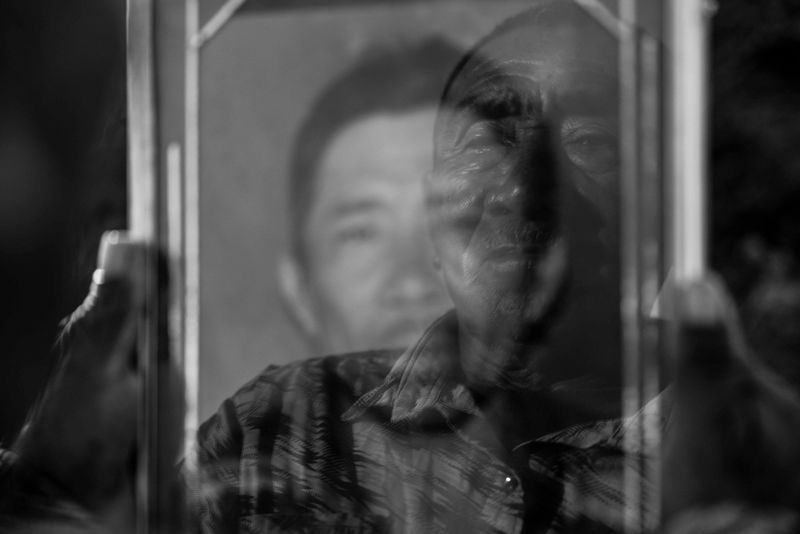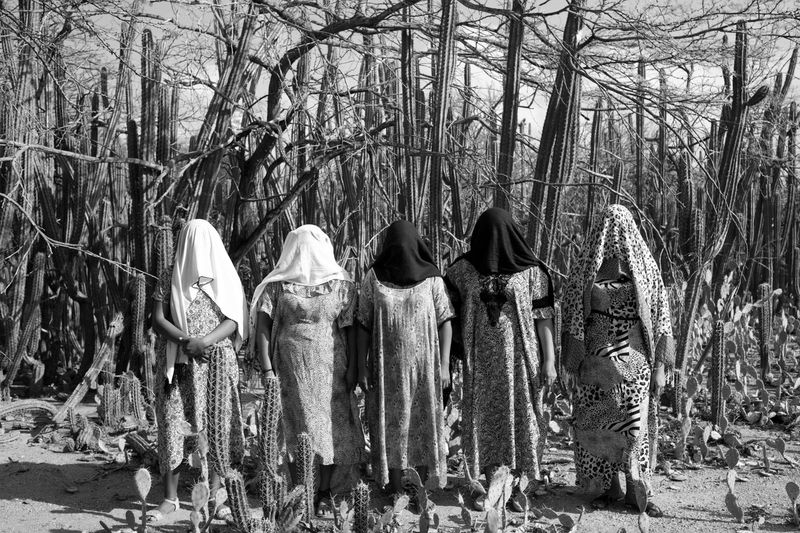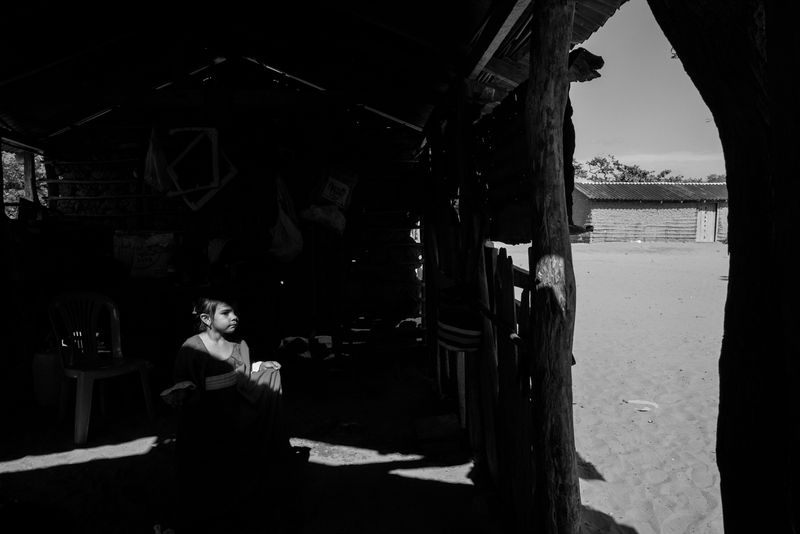YOLÜJA
-
Dates2017 - Ongoing
-
Author
- Locations Colombia, La Guajira
YOLÜJA aims to highlight the spiritual damage caused by the arrival of the largest open-pit coal mine in Latin America — el Cerrejón — in their territory in 1984. In his language, YOLUJA means demon, shadow, evil. It also means mine, train and coal.
YOLUJA is a multimedia project that seeks to reveal the dreams of the Pushainas, a family belonging to the Wayuu Indigenous community, inhabitants of the Guajira desert on Colombia’s Caribbean coast.
"I have dreamed of what comes on the train. It's something they extract from the mountains: coal. That spirit rides the train when it leaves the mine, and when they unload it here, the spirit gets off, it looks like a dog, it makes us sick, it has taken our sleep."
This is what Poo Pushaina told me when I met him on a beach near his home in La Guajira in 2017, while he was weaving his fishing net. Years later, I returned to delve into the topic that he had suggested I explore in our first conversation: the coal mine.
This coal still doesn't light up his people’s homes, but it has been supplying energy to European cities for decades, leaving them without water under the relentless Guajira sun. These families know coal because its dust is part of their skin, it covers the clothing they hang to dry, it coats the roofs of their homes, it envelops their lungs, it dominates their dreams. "And the Wayuu who doesn't dream is considered dead," Poo told me.
I was intrigued by a word that Poo used repeatedly: YOLUJA. In his language, YOLUJA means demon, shadow, evil. It also means mine, train and coal.
The 'progress' that the mine's businessmen spoke about upon arrival didn't include the communities. As of 2023, 67.4% of La Guajira lives below the poverty line, while the company has extracted roughly 6,300 tons of coal per hour, uninterrupted for almost four decades.
